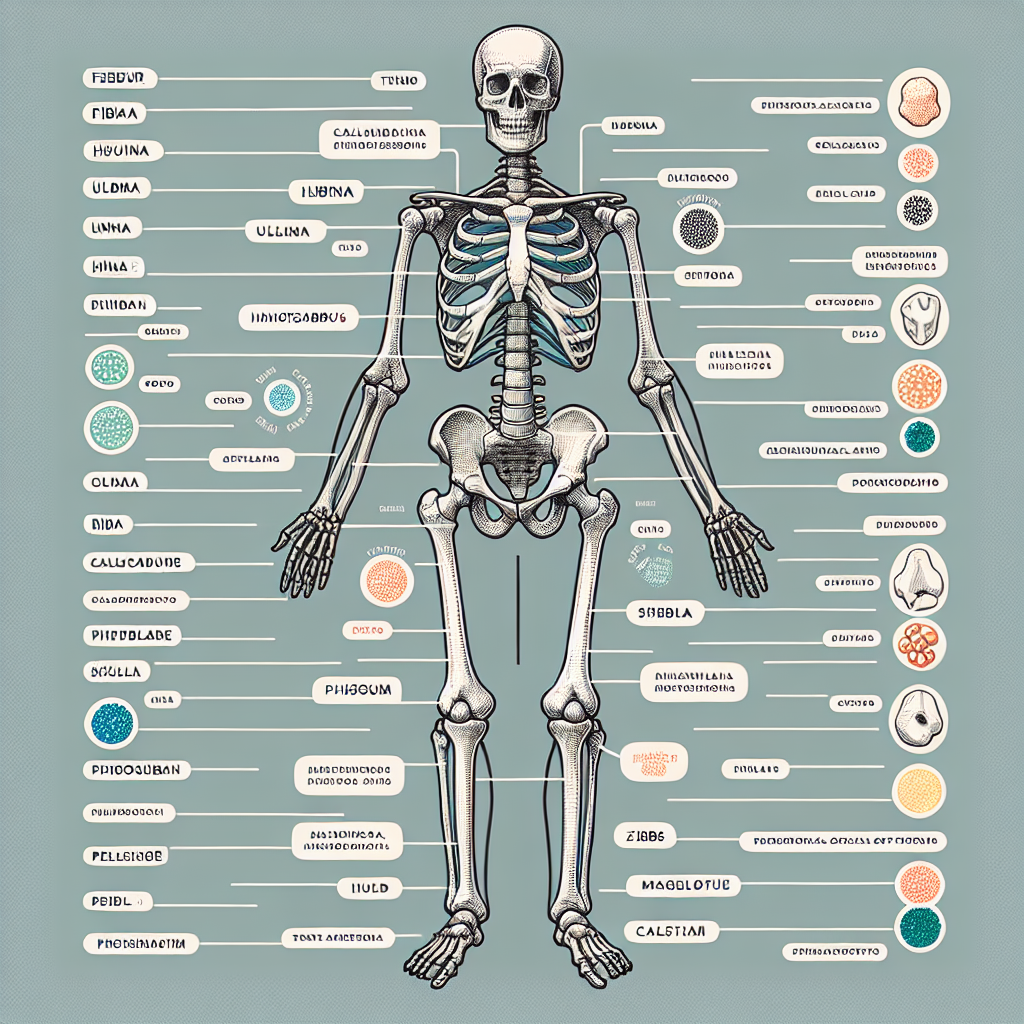Bone health is a crucial aspect of overall well-being, with bone density playing a significant role. It is well-established that calcium and vitamin D are vital for maintaining healthy bones, but the role of trace minerals is often overlooked. Trace minerals, including elements like magnesium, zinc, and boron, are essential in small amounts for various bodily functions, including the development and maintenance of bone structure. This comprehensive article delves into the science behind these minerals and their impact on bone density.
Understanding Bone Density
Bone density refers to the amount of mineral matter per square centimeter of bones. It is a crucial indicator of bone strength and overall health. As we age, bone density naturally decreases, which can lead to conditions such as osteoporosis, making bones fragile and more prone to fractures. Ensuring adequate intake of essential nutrients is one way to support and maintain bone density throughout life.
For a deeper understanding of bone health and its importance, you may find valuable information on Bone Health.
The Role of Trace Minerals in Bone Health
Magnesium
Magnesium is a vital trace mineral that plays an instrumental role in bone formation. It contributes to the conversion of vitamin D into its active form, which is crucial for calcium absorption. A deficiency in magnesium can lead to a decrease in bone density and an increase in the risk of fractures.
Zinc
Zinc is involved in bone growth and regeneration. It is a component of many enzymes that are essential for bone protein synthesis and cell division. Zinc deficiency has been linked to delayed growth in children and bone loss in adults.
Boron
Boron is another trace mineral that supports bone health. It influences the metabolism of minerals involved in bone development, particularly calcium, magnesium, and phosphorus. Boron is believed to enhance the body’s ability to retain these essential minerals and to reduce calcium excretion.
Silicon
Silicon is found in unrefined grains and certain vegetables and is necessary for the formation of collagen, the protein matrix that provides bones with their structure and flexibility. While not as well-known as other trace minerals, silicon’s role in bone health is becoming increasingly recognized.
Copper
Copper aids in the formation of collagen and elastin, both vital to the structural integrity of bones. Copper also has an antioxidant function and is involved in the formation of bone-strengthening enzymes.
Maximizing Absorption of Trace Minerals
To maximize the absorption of these trace minerals, a balanced diet is essential. Foods rich in these minerals include nuts, seeds, whole grains, leafy green vegetables, and lean meats. However, some factors can influence the absorption and utilization of trace minerals, such as phytic acid found in some plant foods, which can bind minerals and prevent their absorption.
For strategies on maximizing nutrient absorption, particularly calcium, consider reading Maximizing Calcium Absorption for Bone Strength.
The Research on Trace Minerals and Bone Density
Numerous studies have highlighted the importance of trace minerals in maintaining bone density. For instance, research suggests that magnesium supplementation can improve bone mineral density in postmenopausal women. Additionally, zinc has been shown to enhance bone formation and mineralization in animal models.
To further explore the role of nutrition in bone development, especially during childhood, read Childhood Nutrition and Long-term Bone Health.
External Resources Supporting Trace Minerals’ Role in Bone Health
- The National Institutes of Health provides a comprehensive overview of magnesium and its specific health benefits, including its impact on bone health.
- A detailed scientific article explores the multifaceted role of zinc in the human body, including bone health.
- The International Boron Association offers research findings on the effect of boron on bone health, including its potential to improve the strength and density of bones.
Combating Bone Density Loss During Specific Life Stages
Different life stages require tailored approaches to maintain bone density. For instance, menopause is a critical period for women, as declining estrogen levels can lead to a rapid decrease in bone density. A balanced diet, lifestyle changes, and, if necessary, supplements can help mitigate these effects.
For a focused discussion on this topic, please visit Combating Bone Density Loss during Menopause.
Conclusion
Trace minerals are small but mighty warriors in the battle for strong bones. While they are only required in trace amounts, their impact on bone density and overall bone health is substantial. A balanced diet, rich in these minerals, is the cornerstone of maintaining bone strength. It’s crucial to pay attention to these often-overlooked nutrients to ensure a robust skeletal system throughout life.
For those looking to adopt a healthy lifestyle that supports bone density, incorporating weight-bearing exercises is also beneficial. Learn more about this in Weight-bearing Exercises for Stronger Bones.
In conclusion, trace minerals are essential for maintaining bone density and overall health. By understanding their role and ensuring their presence in our diet, we can support our skeletal system and enhance our quality of life.
Remember, while this article provides comprehensive information about the impact of trace minerals on bone density, it is always recommended to consult with healthcare professionals for personalized advice and treatment plans.



